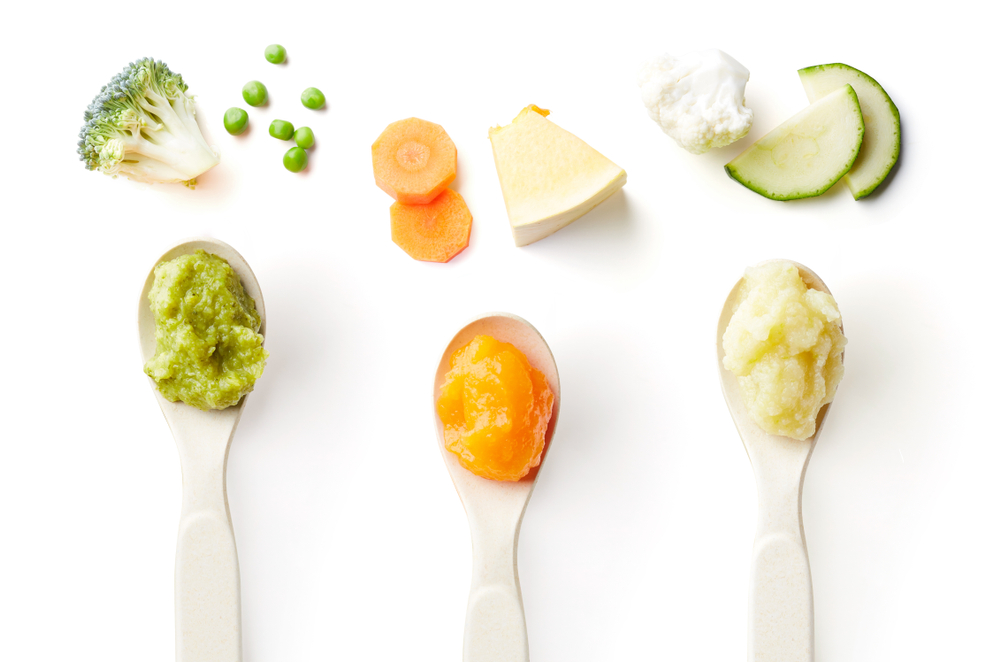Diet Decisions. What to Feed a Baby
Friday, October 26, 2018

When just starting out as the parent of a newborn, it can feel like you’re in uncharted territory. Suddenly you’re not just responsible for your own life, there’s a whole other person who needs your constant care. It can be overwhelming, especially if you’re second-guessing every nutritional choice you make for your child. But help is out there!
When just starting out as the parent of a newborn, it can feel like you’re in uncharted territory. Suddenly you’re not just responsible for your own life, there’s a whole other person who needs your constant care. It can be overwhelming, especially if you’re second-guessing every nutritional choice you make for your child. But help is out there! There are countless resources available online to help new parents, so if you’re wondering what to feed a baby, Baby Train is here to help.
The First 6 Months
Good news on the what to feed a baby front - you won’t be thrown straight in the deep end of infant nutrition guidelines. For the first 6 months of life, babies only need one thing: breast milk, or the equivalent infant formula. Breastfeeding isn’t the easiest thing in the world, so infant formula is a great backup option.
That said, before you decide to exclusively feed formula, make a good attempt at breastfeeding, and get some help if you’re struggling with it. Aside from all the nutritional benefits, breast milk has some of the mother’s cells in it, including immune system information that can be passed onto a baby to help protect it from disease.
The Early Baby Gets the...What?
Around the 4-6 month mark, babies can start having solid foods introduced. So what exactly should you feed your baby when it gets up to solid foods? Well, you don’t have to suddenly start cooking gourmet 3 course meals. You should continue to feed your baby breastmilk and formula, and start introducing wet mushy foods, one at a time, a few days apart, to watch for any adverse reactions.
Vegetables, fruit, infant cereals, meats, and legumes, are the best starting foods for babies. Keep in mind that infant nutrition guidelines advise that infant cereals should have extra iron to offer more value to the baby. Don’t hand your baby a whole carrot though - cook and mash whatever you can, and cut into small soft pieces what you can’t. Also don’t expect your baby to want to eat a whole lot. They don’t know what they’ve been missing out on yet!
Water Worries
Breastfeeding and formula feeding should continue for the first 12 months of life, and breastfeeding can continue for as long as necessary afterwards until the baby is ready to switch exclusively to solid foods, so what to feed a baby doesn’t have to include other liquids quite yet. Liquids can be introduced, but must be done so carefully. Any water you give a baby should have been boiled and cooled first, and after 6 months, you can start teaching your infant to use a cup.
12 Months
Between 6 and 12 months of age, your baby’s motor skills will develop exponentially, and it’s important to encourage self-feeding skills. While spoon feeding a baby, also allow it access to its own cutlery and bowl of food, so it can learn to feed itself. Babies aren’t quite as opposed to mess as most adults are, so there’s a good chance the cutlery will spend more time on the floor than in your child’s mouth, but don’t worry about it.
In time, you can start adding harder foods to your repertoire, provided they’re cut into small pieces. Infant nutrition guidelines say egg, bread, cereals, rice, pasta, and dairy can be introduced between the 6 and 12 month marks, but look out for reactions that could indicate intolerance or allergies. Only offer harder food when your baby is ready for it though - unchewed foods can be a choking hazard for small throats.
The most important thing to remember is that the baby dictates the schedule. Feed it when it’s hungry, and only introduce solid foods when it’s ready to receive them. You can figure out what to feed a baby just by paying attention to what it’s asking for.
Offers, updates and competitions...